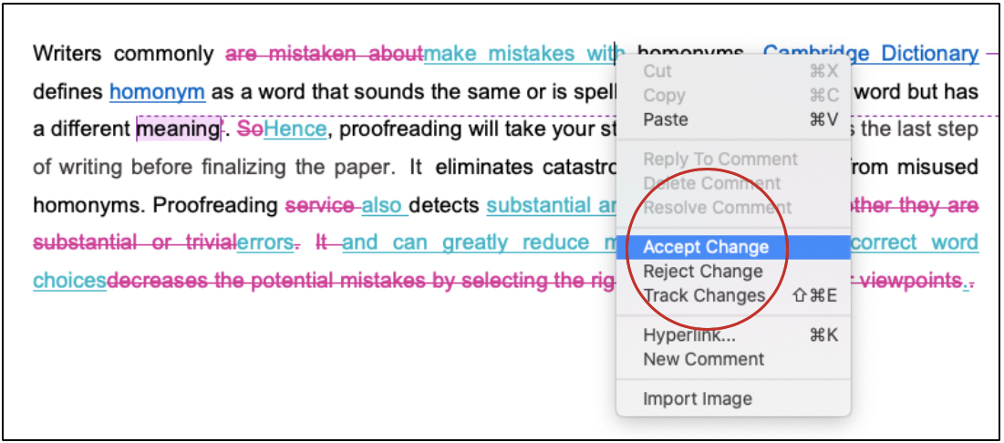If you are just starting with academic writing, you may feel overwhelmed by the pressure that academic writing usually imposes. However, as demanding as it may seem, you can easily master academic writing if you know the right rules to follow. This article particularly reaches out to beginners in academic writing to help you master this form of writing. Here, we will go through the basic language rules that apply to all kinds of academic writing (generally) and will help you master it in no time.

This guide discusses the basic language rules to help you ace academic writing. To give you an opportunity to practice proofreading, we have left a few spelling, punctuation, or grammatical errors in the text. See if you can spot them! If you spot the errors correctly, you will be entitled to a 10% discount.
If you are just starting with academic writing, you may feel overwhelmed by the pressure that academic writing usually imposes. However, as demanding as it may seem, you can easily master academic writing if you know the right rules to follow. This article particularly reaches out to beginners in academic writing to help you master this form of writing. Here, we will go through the basic language rules that apply to all kinds of academic writing (generally) and will help you master it in no time.
Before we begin, let us shed some light on what establishes a piece of writing as academic writing. In simple words, academic writing is the format you use when you are writing for scholarly purposes. In other words, for universities, colleges, or for publication in academic articles and journals.
It is essentially a way of writing that abides by certain rules and regulations pertaining to the use of language, tone, writing style, writing format, and so on. It has certain goals, including being precise, clear, structured, focused, and logical. Here are certain characteristics of academic writing that will help you recognize it:
Utilizes a formal tone and approach
It is well planned and structured
Focuses on the topic of the writing
It is logical and provides substantial evidence to prove an idea
So, as it is crystal clear, it is pretty regulated, which is why beginners become overwhelmed by it. However, there is nothing to fear as it is not that hard to follow. Even though it may seem to have too many rules and regulations, it is, in the end, used to allow readers to understand better. Therefore, with the usage of difficult sentences and words, it is not complicated at all. With enough practice, academic writing is an easy art to master. Of course, if you follow the right rules. Here are the basic language rules for academic writing which can help you more than you think.
There are no hard and fast rules on how you can sentence your structures except for one — do not complicate them. You want your readers to thoroughly understand what you want to convey, not have them solve word riddles. So, you need to mix in various lengths of sentences to ensure that your piece is balanced.
Here are the things that you should avoid:
Run-on sentences
Fragmenting sentences
Unusually long sentences
Misplaced modifiers
When it comes to academic writing, you need to be careful of what you are writing and what you are meaning. There are various language rules that students and even experts mix up. Some examples include misutilization of the articles, mixing up pronouns (avoid using second-person pronouns here), using wrong prepositions, and, more commonly — using the wrong word for the wrong intention.
For academic writing, the use of capitalization is mostly for differentiating proper nouns. Therefore, make sure that you do not capitalize as and when you see fit but instead focus on the rule mentioned above. Also, make sure you are consistent with how you capitalize your headings and titles.
Punctuation marks are important language rules that people tend to overlook the most. There are various common misconceptions or misplacement of punctuation marks. However, you should pay strict attention to such mistakes in academic writing.
After all, misplacement of punctuation marks can vastly change the meaning of your sentence. Therefore, make sure you understand the purpose of a punctuation mark before you use it.
Lastly, you need to pay attention to how you use your verbs in your academic work. There needs to be a proper verb-subject relationship to avoid misunderstanding or confusion for your readers. Also, the tense of your verbs needs to be consistent depending on what you are trying to do:
Generalization
Stating facts
Describing content
Elaborating details that have ongoing relevancy
Reporting finished efforts
Be cautious of phrasal verbs, as they can be tricky to use and sometimes too informal for academic writing.
Remember that you can only get better when you practice more. Also, always make sure that you edit and proofread your work after you finish, as these steps are essential in writing. You may edit and proofread your work on your own. However, if you want expert aid, you can always reach out to professional services to help you out.
Best Edit & Proof expert editors and proofreaders focus on offering manuscripts with proper tone, content, and style of academic writing, and also provide an upscale editing and proofreading service for you. If you consider our pieces of advice, you will witness a notable increase in the chance for your research manuscript to be accepted by the publishers. We work together as an academic writing style guide by bestowing subject-area editing and proofreading around several categorized writing styles. With the group of our expert editors, you will always find us all set to help you identify the tone and style that your manuscript needs to get a nod from the publishers.

You can also avail of our assistance if you are looking for editors who can format your manuscript, or just check on the particular styles for the formatting task as per the guidelines provided to you, e.g., APA, MLA, or Chicago/Turabian styles. Best Edit & Proof editors and proofreaders provide all sorts of academic writing help, including editing and proofreading services, using our user-friendly website, and a streamlined ordering process.
Visit our order page if you want our subject-area editors or language experts to work on your manuscript to improve its tone and style and give it a perfect academic tone and style through proper editing and proofreading. The process of submitting a paper is very easy and quick. Click here to find out how it works.
Our pricing is based on the type of service you avail of here, be it editing or proofreading. We charge on the basis of the word count of your manuscript that you submit for editing and proofreading and the turnaround time it takes to get it done. If you want to get an instant price quote for your project, copy and paste your document or enter your word count into our pricing calculator.
Contact us to get support with academic editing and proofreading. We have a 24/7 active live chat mode to offer you direct support along with qualified editors to refine and furbish your manuscript.
Follow us on Twitter, LinkedIn, Facebook, Instagram, and Medium.
For more posts, click here.
How to Determine Variability in a Dataset
14.10.2023
How to Determine Central Tendency
19.02.2023
How to Specify Study Variables in Research Papers?
14.01.2023
Population vs Sample | Sampling Methods for a Dissertation
14.01.2023
How to Ensure the Quality of Academic Writing in a Thesis and Dissertation?
04.12.2022
How to Avoid Anthropomorphism in Your Dissertation?
04.11.2022
How to Write a Research Methodology Section for a Dissertation and Thesis
07.08.2022
How to Write a Theoretical Framework for a Dissertation and Thesis?
05.08.2022
How to Write Literature Review for a Dissertation and Thesis
02.08.2022
How to Write a Dissertation and Thesis Introduction
31.07.2022

Academic and research works are tenacious studies that include specifics. Therefore, you will come across various terms and phrases that you need to keep in mind while working around. Naturally, it can get overwhelming. However, once you understand the concept, the overall process becomes very easy to work with. This article will focus on dependent and independent variables and discuss what they are, how to determine dependent and independent variables and their uses in academic writing.
Continue Reading
Being a proofreading and editing service provider, we often find researchers making common citation mistakes in their research papers. Well, making mistakes is normal, but repeating the same mistakes is not accepted. Recognizing the gravity of the situation, we here bring the list of common errors students and researchers make while citing sources.
Continue Reading
A literature review includes academic sources on a specific topic. It aims to supply up-to-date knowledge, ensuring that you specify relevant theories, methodologies, and deficiencies in the extant research.
Continue Reading